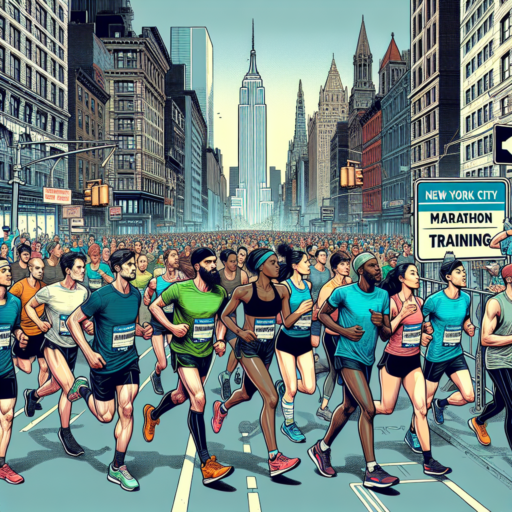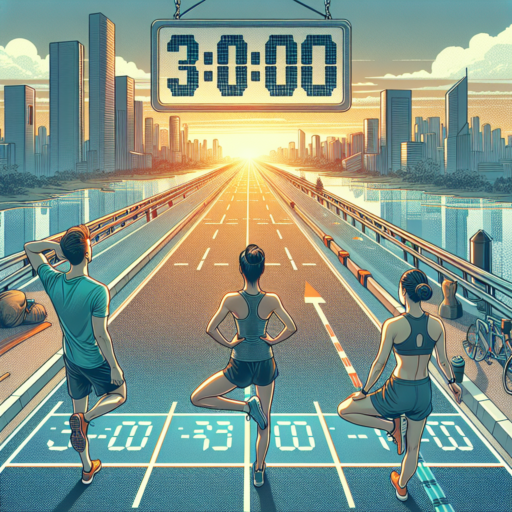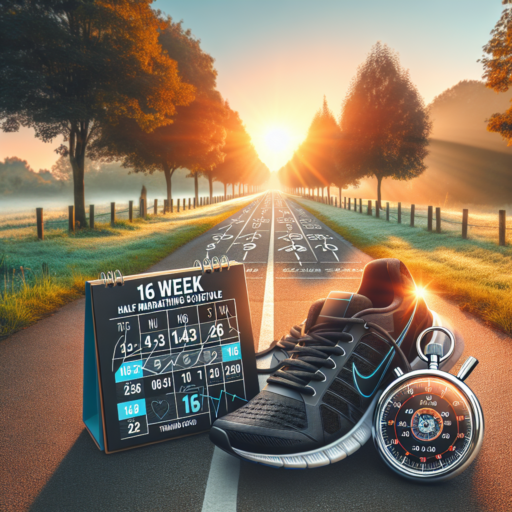How many months to train for nyc marathon?
Training for the NYC Marathon is a significant commitment, and the time required can vary greatly depending on your starting point. For beginners, a typical training plan spans four to six months. This allows ample time to build up the endurance necessary to complete the 26.2-mile journey. During this period, your regimen will gradually increase in both distance and intensity, preparing you for the physical and mental challenges of marathon day.
For intermediate runners who have a few races under their belt, the focus of a three to four-month training program is often on improving performance. This timeframe is adequate for enhancing your stamina, speed, and race strategy, without the risk of overtraining or injury. It assumes a solid running base, where increasing mileage and incorporating speed work and long runs can be more aggressively pursued.
However, seasoned marathoners with multiple races experience can opt for a more compressed preparation period, typically two to three months. At this level, training is fine-tuned with a focus on specific marathon goals, be it a personal best or a particular race strategy. The shorter timeframe leverages the runner’s pre-existing high level of fitness, honing in on the marathon’s unique demands through carefully balanced training sessions.
Can anyone run in the New York City Marathon?
The New York City Marathon stands as one of the most iconic events in the world, attracting runners from all corners of the globe. The thought of participating in this prestigious event can be both exhilarating and intimidating. So, the pressing question arises: Can anyone run in the New York City Marathon? At its core, the NYC Marathon is inclusive, offering various avenues for entry, though certain conditions do apply.
First and foremost, the marathon implements a lottery system due to its overwhelming popularity. This system is designed to provide a fair chance for all aspiring participants. Regardless of one’s professional status or running ability, entering the lottery grants you a chance to secure a spot. However, it’s important to note that the odds of being selected can vary year by year, depending on the number of applicants.
For those seeking a more guaranteed entry, qualifying by time is another option. The marathon sets specific time standards for different age and gender categories. Runners who have achieved these times in certified races are eligible for guaranteed entry. This pathway rewards the dedication and performance of avid runners, ensuring that top performers can stand alongside novice enthusiasts at the starting line.
Additionally, charity slots provide a meaningful way to participate. Runners who commit to raising funds for official charity partners of the marathon can gain entry. This not only opens the door for a wider range of participants but also harnesses the event’s spirit to support various causes. Securing a spot through a charity partner involves committing to a fundraising minimum, making your marathon journey impactful beyond the physical challenge.
How to qualify for the New York City Marathon?
Qualifying for the New York City Marathon is a dream for many runners worldwide, but how do you turn that dream into a reality? There are a few avenues available for athletes looking to secure their spot on the starting line in one of the world’s most famous marathons.
Time Qualifiers
One of the most straightforward methods to qualify for the New York City Marathon is by achieving a time standard in a previous race. The New York Road Runners (NYRR) organization specifies time qualifications that must have been met during an eligible event. These times vary by age and gender, encouraging a wide spectrum of runners to aim for their personal bests. Whether you’re a seasoned marathoner or a speedy half-marathoner, meeting these stringent time criteria in official races can earn you a spot at the starting line.
9+1 Program for NYRR Members
For New York Road Runners members, the 9+1 program offers a unique path to marathon glory. By completing nine NYRR-sponsored races and volunteering for one, members can earn guaranteed entry to the following year’s marathon. This method not only fosters a strong running community but also encourages consistent participation and volunteering, highlighting the spirit of the marathon beyond just race day.
Regardless of the method you choose, securing a place in the New York City Marathon requires planning, dedication, and often a bit of speed. Each qualification avenue has its own set of requirements and deadlines, so be sure to review the specific details provided by the NYRR to ensure your dream of running through the streets of New York becomes a reality.
No se han encontrado productos.
How many hours does it take to run the NYC Marathon?
The New York City Marathon, one of the world’s most prestigious long-distance running events, draws thousands of participants from around the globe each year. Runners often ponder over the question: «How many hours does it take to run the NYC Marathon?» While the answer is influenced by a multitude of factors, including the runner’s experience, conditioning, and weather conditions on race day, some general estimations can be offered.
Firstly, it’s important to note that the average finish time for marathoners varies significantly between men and women. According to recent statistics, the average finish time for male runners hovers around 4 hours and 20 minutes, while female runners tend to cross the finish line, on average, in about 4 hours and 45 minutes. Of course, elite athletes and seasoned marathoners can complete the race much faster, with top professionals often finishing in just over 2 hours.
For novice runners or those participating in their first NYC Marathon, the completion time may be longer. Many first-time marathoners set a goal to simply finish the race, focusing on the incredible achievement of running 26.2 miles through the streets of New York City. For these runners, a finish time of 5 to 6 hours may be more realistic. Climate can also play a critical role, as extreme weather conditions have been known to impact runners’ pace, potentially extending the time it takes to complete the marathon.




